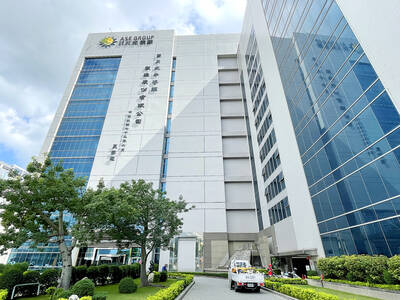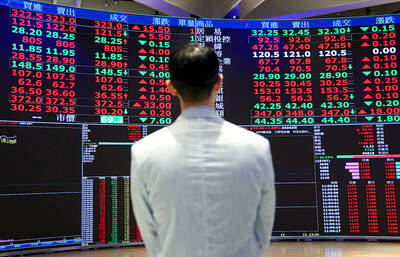Finance ministers and central bankers from leading industrial nations focused yesterday on measures to stimulate a tentative global economic recovery and calming jittery markets as they launched talks in northern Canada.
Topping the agenda for G7 talks, which some have said would be “frank,” will be growing concerns over eurozone debt as well as the yuan, which China has been accused of keeping deliberately weak to boost exports to the West.
The state of the public coffers in Spain and Portugal have been causing growing unease, with investors fearing a scenario similar to that in Greece.
Greece has been placed under unprecedented EU surveillance as it attempts to implement austerity measures to slash its massive debt and a 12.7 percent public deficit, while Portugal’s deficit hit 9.3 percent last year, its highest since 1974.
“Fundamentally, this is an issue for the EU, but a number of countries represented here are EU countries, so it’s a matter of concern that I’m sure we’ll talk about tonight and tomorrow,” Canadian Finance Minister Jim Flaherty told reporters.
European Central Bank chief Jean-Claude Trichet said on Thursday the high deficit and debt in some countries was placing an “additional burden” on monetary policy and undermining the bloc’s stability and growth pact.
The talks in Canada’s frigid far north would also touch on the timing of “exit strategies” from costly stimulus measures undertaken by G7 member governments, as well as concerns about their combined debts of more than US$30 trillion.
Flaherty said there would also be “major discussions” about the Chinese currency.
“This is an issue that cannot be avoided,” Flaherty said. “It is a G20 issue ... but it is also an issue that concerns Western industrialized countries represented in the G7.”
G7 delegates formally opened their talks on Friday evening at a hotel restaurant in this capital of Canada’s Nunavut territory.
The G7 delegates from Canada, the US, France, Germany, Italy, Japan and Britain were joined by officials from the IMF, the World Bank and the European Commission.
With the G20 taking the lead as the world’s premier economic forum and the rise of China’s economic clout — poised to overtake Japan as the world’s second-biggest economy this year — the G7 is struggling to remain relevant.
Although their economies are more or less stable amid a shaky global recovery, the world’s richest countries are promoting diverging economic and financial policies.
They remain at odds, for example, over how to move forward on a regulatory framework for the banking sector.

EXPANSION: The investment came as ASE in July told investors it would accelerate capacity growth to mitigate supply issues, and would boost spending by 16 percent ASE Technology Holding Co (ASE, 日月光投控), the world’s biggest chip assembly and testing service provider, yesterday said it is investing NT$17.6 billion (US$578.6 million) to build a new advanced chip packaging facility in Kaohsiung to cope with fast-growing demand from artificial intelligence (AI), high-performance-computing (HPC) and automotive applications. The new fab, called K18B, is to commence operation in the first quarter of 2028, offering chip-on-wafer-on-substrate (CoWoS) chip packaging and final testing services, ASE said in a statement. The fab is to create 2,000 new jobs upon its completion, ASE said. A wide spectrum of system-level chip packaging technologies would be available at

Taiwan’s foreign exchange reserves hit a record high at the end of last month, surpassing the US$600 billion mark for the first time, the central bank said yesterday. Last month, the country’s foreign exchange reserves rose US$5.51 billion from a month earlier to reach US$602.94 billion due to an increase in returns from the central bank’s portfolio management, the movement of other foreign currencies in the portfolio against the US dollar and the bank’s efforts to smooth the volatility of the New Taiwan dollar. Department of Foreign Exchange Director-General Eugene Tsai (蔡炯民)said a rate cut cycle launched by the US Federal Reserve

HEAVYWEIGHT: The TAIEX ended up 382.67 points, with about 280 of those points contributed by TSMC shares alone, which rose 2.56 percent to close at NT$1,400 Shares in Taiwan broke records at the end of yesterday’s session after contract chipmaker Taiwan Semiconductor Manufacturing Co (TSMC, 台積電) hit a fresh closing-high amid enthusiasm toward artificial intelligence (AI) development, dealers said. The TAIEX ended up 382.67 points, or 1.45 percent, at the day’s high of 26,761.06. Turnover totaled NT$463.09 billion (US$15.22 billion). “The local main board has repeatedly hit new closing highs in the past few sessions as investors continued to embrace high hopes about AI applications, taking cues from a strong showing in shares of US-based AI chip designer Nvidia Corp,” Hua Nan Securities Co (華南永昌證券) analyst Kevin Su

Nvidia Corp’s major server production partner Hon Hai Precision Industry Co (鴻海精密) reported 10.99 percent year-on-year growth in quarterly sales, signaling healthy demand for artificial intelligence (AI) infrastructure. Revenue totaled NT$2.06 trillion (US$67.72 billion) in the last quarter, in line with analysts’ projections, a company statement said. On a quarterly basis, revenue was up 14.47 percent. Hon Hai’s businesses cover four primary product segments: cloud and networking, smart consumer electronics, computing, and components and other products. Last quarter, “cloud and networking products delivered strong growth, components and other products demonstrated significant growth, while smart consumer electronics and computing products slightly declined,” compared with the